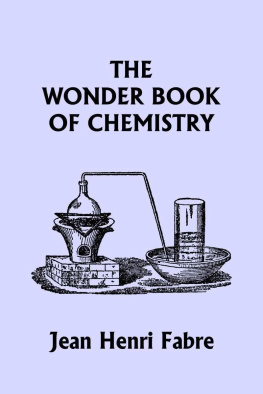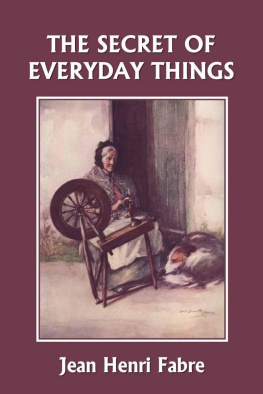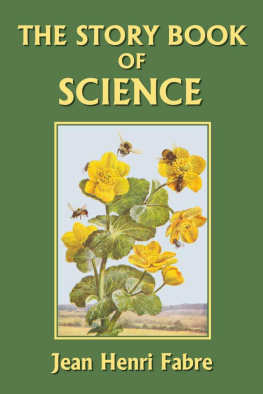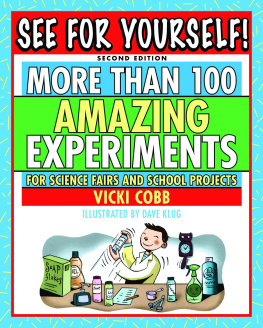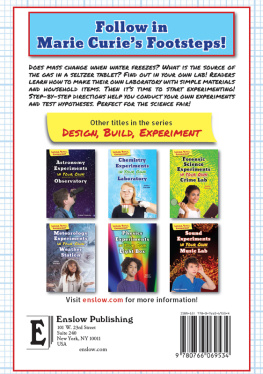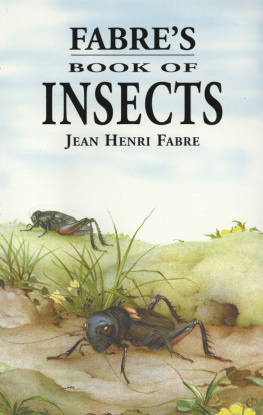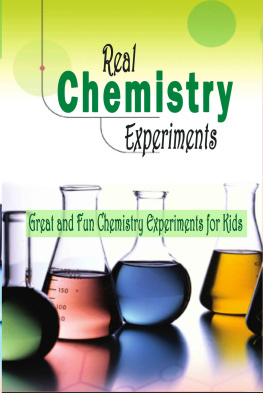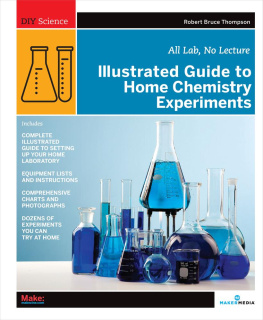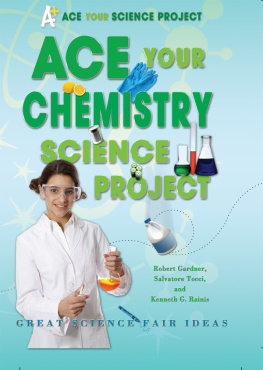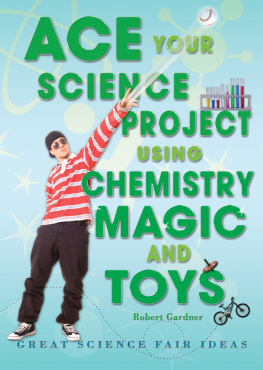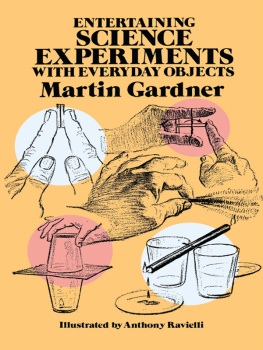The Wonder Book of Chemistry
by
Jean Henri Fabre
Yesterday's Classics
Chapel Hill, North Carolina
Cover and Arrangement 2010 Yesterday's Classics, LLC
All rights reserved. No part of this book may be reproduced or retransmitted in any form or by any means without the written permission of the publisher.
This edition, first published in 2010 by Yesterday's Classics, an imprint of Yesterday's Classics, LLC, is an unabridged republication of the work originally published by The Century Company in 1922. This title is available in a print edition (ISBN 978-1-59915-253-0).
Yesterday's Classics, LLC
PO Box 3418
Chapel Hill, NC 27515
Yesterday's Classics
Yesterday's Classics republishes classic books for children from the golden age of children's literature, the era from 1880 to 1920. Many of our titles are offered in high-quality paperback editions, with text cast in modern easy-to-read type for today's readers. The illustrations from the original volumes are included except in those few cases where the quality of the original images is too low to make their reproduction feasible. Unless specified otherwise, color illustrations in the original volumes are rendered in black and white in our print editions.
Translator's Preface
"What is the use of a book without pictures or conversations?" asks Alice, disgustedly, just before taking her departure for Wonderland, where she finds no lack of animated discourse.
This book, like its predecessors in the series, is conversational in form and has as many pictures as the subject-matter calls for.
All boys and some girls, as well as their elders, take more or less interest in the marvels of chemistry. To give an elementary but useful knowledge of these marvels, chiefly by means of simple experiments clearly described by the writer and easily performed at home by any wide-awake young reader, is the object of the following talks by "Uncle Paul."
The personal, biographical interest of the book is not to be overlooked. The boys Jules and Emile are the author's own children, faithfully portrayed even to the names they bear. In his captivating fashion the man of vast learning makes himself at once teacher and comrade to his young hearers, and we learn that "his chemistry lessons especially had a great success. With apparatus of his own devising and of the simplest kind he could perform a host of elementary experiments, the apparatus as a rule consisting of the most ordinary materials, such as a common flask or bottle, an old mustard-pot, a tumbler, a goose-quill or a pipe-stem. A series of astonishing phenomena amazed their wondering eyes. He made them see, touch, taste, handle, and smell, and always 'the hand assisted the word,' always 'the example accompanied the precept,' for no one more fully valued the profound maxim, so neglected and misunderstood, that 'to see is to know.' " Though living creatures necessarily claimed the naturalist's first affections, he none the less "animates even the simple elementary bodies, celebrating the marvelous activities of the air, the violence of chlorin, the metamorphoses of carbon, the miraculous bridals of phosphorus, and the 'splendors which accompany the birth of a drop of water.' "
Concerning the eager young pupils, Jules and Emile, by this time well known to all readers of the series, a still further word may not be out of place. Emile, the younger, the "giddy-pate" of the narrative, impulsive and full of boyish curiosity and vigorous young life, is drawn for us with fidelity and a delightful touch of humor by the loving father. Jules is shown to us as more sedate and gifted with finer qualities, and with his grief-stricken parent we mourn his early death. "He was a youth of great promise, 'all fire, all flame'; of a serious nature; an exquisite being, of a precocious intelligence, whose rare aptitudes both for science and literature were truly extraordinary. Such too was the subtlety of his senses that by handling no matter what plant, with his eyes closed, he could recognize and define it merely by the sense of touch. This delightful companion of his father's studies had scarcely passed his fifteenth year when death removed him. A terrible void was left in his heart, which was never filled. Thirty years later the least allusion to this child, however tactful, which recalled this dear memory to his mind, would wring his heart, and his whole body would be shaken by his sobs."
In a memorial foreward to the second volume of his "Souvenirs Entomologiques" the bereaved father pays loving tribute to this lost son and fellow-worker.
Thus it is said that the following chapters will be found to have a human and personal appeal to supplement their scientific interest. May they yield both pleasure and profit to their readers!
Contents
CHAPTER I
Introduction
U NCLE P AUL is a man of some learning who waters his lettuce-plants and weeds his cabbages and turnips in the quiet of a humble little village. Staying with him are his nephews, Emile and Jules, young scholars already grappling with the intricacies of the rule of three and the pitfalls of the past participle, and both of them very eager to learn. Jules, the elder, is even now beginning to suspect that school will not have taught him everything when he has mastered his grammar and arithmetic. Their uncle does his best to encourage the boys' desire for knowledge, convinced as he is that in the stern battle of life our best weapon is a trained intellect.
For some time past his family had noticed in him an unusual preoccupation. There was ripening in his mind a plan for teaching his nephews the rudiments of chemistry, that science so fruitful in its practical applications.
"What are these dear children going to be, some day?" he asked himself. "Will they be manufacturers, artisans, mechanics, farm laborers, or what? Who knows? One thing, at any rate, is certain, and that is, whatever direction their activity takes it will be to their advantage to be able to give an account of the things they have accomplished. A little science is something that they must have. I should like my nephews to know what air is, and water; why we breathe, and why wood burns; the nutritive elements essential to plant life, and the constituents of the soil. And it is no vague and imperfect knowledge from hearsay I would have them gain of these fundamental truths, on which depend agriculture and the industrial arts and our health itself; I would have them know these things thoroughly from their own observation and experience. Books here are insufficient, and can serve merely as aids to scientific experiment. But how shall we manage it?"
In this wise did Uncle Paul ponder over his project, a project involving grave difficulties, such as the want of a laboratory and of all those ingenious devices without which it would at first seem impossible to undertake any serious experiments in chemistry, the only appliances at hand being the commonest of household utensils,bottles and phials, jars and pitchers, plates and cups and earthen bowls, drinking-glasses and old mustard pots. It is true the distance to town was not great. For special occasions, but within the very modest limits set by an imperative economy, a few drugs and glass implements might be bought. Ten francs must be made to cover these extraordinary purchases. How, then, to impart some useful knowledge of chemistry with the help of little more than such simple appliances as the village could furnishthat was the problem.
But in the end it came about that one day Uncle Paul announced to his nephews that he proposed to enliven the monotony of their regular studies by introducing a little diversion. Without using the word "chemistry," which would have meant nothing to them, he spoke of certain interesting things he had to show them, of various wonderful experiments to be performed. Lively and curious, as are all children, Emile and Jules greeted this announcement with enthusiasm.

